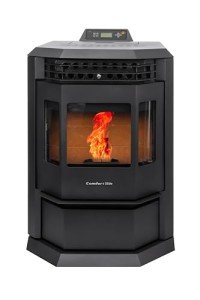Why All The Fuss About Fireplace Store?
The Ultimate Guide to Fireplace Stores: Everything You Need to Know
Fireplaces have long been a sign of heat, convenience, and design within a home. They produce a centerpiece in living spaces and use a relaxing environment for families and friends to gather around. As a result, the fireplace industry has actually seen a rise in need for numerous styles, designs, and accessories. This post explores what to consider when visiting a fireplace store, types of fireplaces offered, and responses to frequently asked concerns, offering a comprehensive summary for homeowners aiming to purchase.
The Importance of Choosing the Right Fireplace Store
Buying a fireplace is a substantial investment, making it vital for property owners to select a reputable and experienced fireplace store. Here are some factors why selecting the ideal store matters:
Wide Variety of Options: A credible fireplace store provides a varied series of fireplaces, including wood-burning, gas, and electric choices. This range guarantees that house owners can find the perfect suitable for their taste and needs.
Specialist Guidance: Knowledgeable personnel can provide valuable insights into the benefits and downsides of each type of fireplace, assisting consumers make informed decisions.
Quality control: Established shops are most likely to carry high-quality products from trusted brands, guaranteeing customer fulfillment and security.
Installation Services: Many fireplace shops provide installation services and after-sales support, ensuring that the system is not only acquired however is also correctly set up and maintained.
Modification Options: Some shops provide customized fireplaces, accommodating unique choices in style, size, and performance.
Types of Fireplaces Available
When exploring a fireplace store, consumers will experience various kinds of fireplaces. Comprehending these alternatives can help in selecting the ideal one for a home.
1. Wood-Burning Fireplaces
- Description: Traditional type that utilizes wood logs as fuel.
- Advantages:
- Offers a traditional atmosphere and the crackling noise of burning wood.
- Can be more cost-effective in areas abundant in wood supply.
2. Gas Fireplaces
- Description: Uses natural gas or lp and sparks with the flip of a switch.
- Advantages:
- Easier to operate and keep than wood-burning designs.
- Offers a constant heat output and can be more energy-efficient.
3. Electric Fireplaces
- Description: Uses electricity to produce heat and create a flame result.
- Advantages:
- Requires no venting, making installation easier.
- Deals various settings for flame and heat strength.
4. Gel Fuel Fireplaces
- Description: Uses gel fuel canisters to create a real flame without venting.
- Advantages:
- Portable and easy to set up.
- No requirement for a chimney or gas line.
5. Ethanol Fireplaces
- Description: Burns bioethanol fuel, providing a genuine flame.
- Advantages:
- Environmentally friendly without any smoke or ash.
- Can be utilized indoors or outdoors.
Fireplace Type
Fuel Source
Vent Requirement
Installation Cost
Upkeep
Wood-Burning
Wood
Yes
Moderate
High
Gas
Natural Gas/Propane
Yes (or optional)
Low
Low
Electric
Electrical energy
No
Low
Extremely Low
Gel Fuel
Gel Fuel
No
Extremely Low
Extremely Low
Ethanol
Bioethanol
No
Low
Low
Elements to Consider When Shopping
When checking out a fireplace store, numerous aspects should be taken into account before making a purchase:
Space: Measure the area where the fireplace will be set up to guarantee the selected model fits conveniently.
Heating Needs: Assess the square video footage of the space to determine the required heat output.
Design: Choose a fireplace that complements existing décor, whether it's rustic, modern, or traditional.
Spending plan: Set a spending plan that includes both the unit's purchase and installation expenses.
Regional Regulations: Check local building codes relating to fireplace installation to ensure compliance.
FAQs About Fireplace Stores
1. What is the very best type of fireplace for a home?
The “best” type depends upon the property owner's needs and choices. Gas fireplaces are popular for their benefit, while wood-burning fireplaces offer a timeless experience.
2. Just how Fireplace Brands USA does a fireplace expense?
Costs can differ considerably based on the type, style, and installation complexity. Standard designs may begin at a couple of hundred dollars, while custom units can exceed a number of thousand.
3. Are electric fireplaces safe?
Yes, electric fireplaces are normally considered safe. They do not produce genuine flames or emissions, minimizing the dangers connected with traditional fireplaces.
4. How do I keep my fireplace?
Maintenance varies by type. Wood-burning models require cleaning of the chimney and flue, while gas fireplaces may require yearly evaluations. Electric fireplaces generally require very little upkeep.
5. Can I install a fireplace myself?
While some electric and gel fireplaces can be set up as DIY projects, it's typically best to work with specialists for gas and wood-burning fireplaces to ensure security and compliance with structure codes.
Selecting the ideal fireplace store is simply as important as picking the kind of fireplace itself. Homeowners should weigh their alternatives thoroughly, thinking about aspects such as installation requirements, heating needs, and total looks. With the best details and guidance from educated staff, consumers can confidently pick a fireplace that perfectly matches their home while providing heat and comfort for several years to come.
